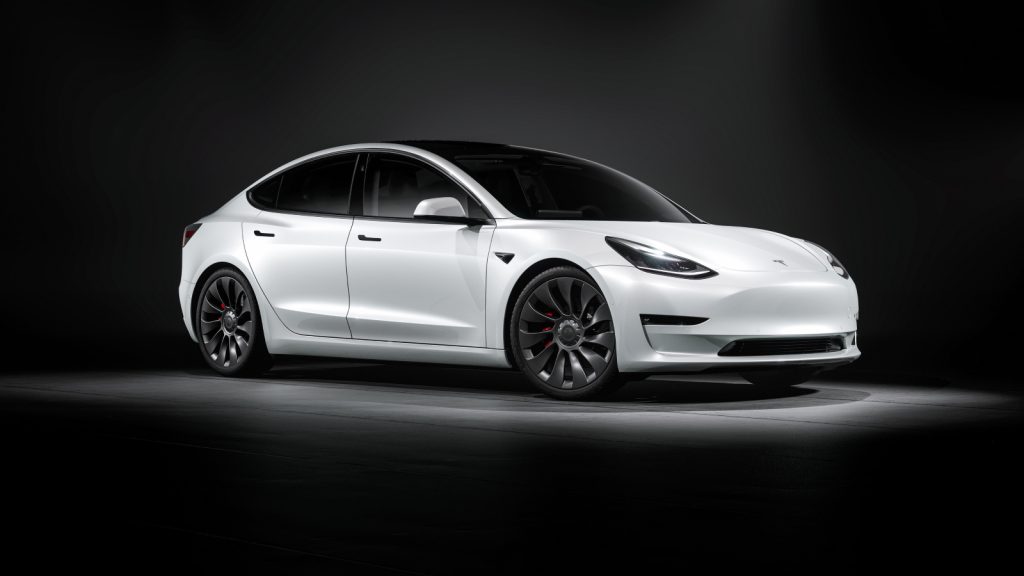The best advice for new car buyers I’ve had over the last couple of years, presuming they needed a car right now, is to buy what they can actually find. Inventory was extremely tight and, depending on what you wanted, there was no guarantee you’d be able to locate a similar car again. That’s finally changing and it’s mostly good news.
The Cars Are Back! The Cars Are Back!
 You know what’s cool about going to a dealership in 2023? They have cars! Cars are fun. We like cars. We are, I think it’s not too controversial to say, pro-car.
You know what’s cool about going to a dealership in 2023? They have cars! Cars are fun. We like cars. We are, I think it’s not too controversial to say, pro-car.
There’s a concept in the automotive space (and other similar businesses) called SAAR. This stands for the Seasonally Adjusted Annual Rate. If you sell sandwiches your expectation is, with some slight variances for geography and other factors (i.e., you’re located on a boardwalk in a beach town), that you’ll sell about as many sandwiches in March as you will in October. Cars are not sandwiches.
For instance, in 2019 (the last normal-ish year), carmakers in the United States sold about 1.3 million cars in both February and September, but more than 1.6 million cars in May and August (the first and last months of the summer selling season). Having a SAAR allows you to look at the sales data from the first quarter and estimate what the annual rate of sales will be for the year.
Car sales dropped significantly in 2020, 2021, and 2022 as automakers hit multiple supply chain issues as an after-effect of COVID, the War in Ukraine, and the cancellation of Good Girls. In the United States, about 13.8 million cars were sold in the U.S., down from over 17 million in 2019. It’s not that people didn’t want cars, it’s that there weren’t as many of them to be sold.
**Trumpets play in the distance**
Hear ye, hear ye, the automotive market experts at Edmunds have sent a scroll from California bearing good news:
The car shopping experts from Edmunds forecast that 3,502,324 new cars and trucks will be sold in the U.S. in the first quarter of 2023, which will be a 5.2% increase from the first quarter of 2022 but a 1.8% decrease compared to the fourth quarter of 2022.
“The auto industry’s wild rollercoaster ride the past few years has finally begun the transition to a smoother, more predictable one as inventory continued to improve in the first quarter,” said Jessica Caldwell, Edmunds’ executive director of insights. “Although the market is nowhere close to the bargain-heavy landscape that consumers came to expect prior to the pandemic, car shoppers should be happy to see that some incentives are cropping up after more than a yearlong drought as inventory levels continue to rise.”
Alas!
Jessica Caldwell is, in my mind, the best analyst out there, so heed her words closely. Incentives, for some people, might be coming back. Cars are sitting on lots a little longer. Cox Automotive, for their part, estimates SAAR was 15.0 million cars in Q1. If we finished the year that way we’d end up with an extra million+ cars sold in the U.S. this year.
Of course, it depends greatly on the automaker. If you want a Toyota, you may be waiting a bit, if you want a Honda or a Nissan product, the news is probably better.
Tesla Sales Up, But Not By Enough To Make Everyone Happy

Building cars is hard. Selling cars isn’t that easy, either, but Tesla has gone from a company repackaging Lotuses to a real deal automaker selling 1.3 million vehicles globally last year. That is remarkable.
This streak is continuing with a first-quarter record of 422,875 vehicles. That’s an increase of 36% y-o-y and 4% from Q4 of 2022. And all it took was a massive price drop.
All good news, yes? Well…
Here comes a Reuters report to rain a little on that parade:
In January, Tesla slashed prices globally by as much as 20%, unleashing a price war after missing Wall Street delivery estimates for 2022. The basic Model Y that used to sell for $65,990 now costs $54,990.
“If they wouldn’t have done the price cut, it would have been ugly. I think what it tells you is the economy is getting tough,” Gene Munster, managing partner at Deepwater Asset Management, said on Sunday.
It gets worse, maybe, because no one can agree how many cars Tesla was supposed to sell for Q1. Was it 420,000 vehicles, which they beat? Or 432,000? Which they did not.
Tesla said a consensus of more than 20 analysts called for 421,500 vehicles delivered, Tesla investor Gary Black said in a tweet. Reuters could not independently confirm that figure.
The consensus is “all over the place,” Munster said.
I guess we’ll have to see what the company can do to get people to buy cars in Q2. Free Twitter verification?
Get Ready To See Lithium Processing Facilities Everywhere
 Lithium! It’s good for bipolar disorder. You can put it in batteries. Sometimes they’ll play Incubus and Weezer back-to-back. There’s actually a lot of it in the earth in a lot of places, though most of it is mined and produced in just three countries: Australia, Chile, and China.
Lithium! It’s good for bipolar disorder. You can put it in batteries. Sometimes they’ll play Incubus and Weezer back-to-back. There’s actually a lot of it in the earth in a lot of places, though most of it is mined and produced in just three countries: Australia, Chile, and China.
That’s about to change. Tesla’s building a lithium refinery in Corpus Christi, Texas (go Hooks!). And Europe, which has one single little refinery on the outskirts of London, is about to get a lot more facilities as well. This Bloomberg story summarizes it quite well. There is, per the report:
- A refinery coming in Brandenburg, Germany
- Another one down the way in Bitterfield, Germany
- Two more coming in the northeast of the UK
- A $616 million facility in Finland
There’s even more planned, largely because both the United States and the European Union are making companies source lithium from places that are not China, Russia, Iran, Venezuela, or other no-no countries. The article does make a good point:
Ultimately, the plants will need more than government backing to thrive, and the focus in Europe’s embryonic lithium industry is on shoring up supplies to feed the plants and striking deals with automakers who were caught short by last year’s supply squeeze. Tesla Inc. CEO Elon Musk said during last year’s boom that lithium refining is a “license to print money,” but the steep decline in prices seen since then offers a reminder of the commercial risks involved.
Still, I’m not gonna bet against lithium until I see EV sales go down quarter-over-quarter.
E-Bikes Could Get Cheaper, Too

Pro-car as we are, we recognize they’re not always the best way to get around in every situation and people deserve options. You know what’s a good way to get cars off the road? Bikes! You know what’s not always a good replacement for the range and cargo capacity of a car? Bikes.
Somewhere in the middle is the motorized bike, a.k.a. the e-bike, which offers some added benefits and range (and often cargo). Denver has been the leader in e-bike promotion after a successful program to offer rebates to income-qualified people who want to buy one of the bikes.
Now, per Axios, Congress is looking to replicate that program nationwide:
The big picture: The bill, called the Electric Bicycle Incentive Kickstart for the Environment (E-BIKE) Act, follows Denver’s successful e-bike rebate program.
- Under that initiative, income-qualified residents get up to $1,400 toward an e-bike, while others get up to $500.
By the numbers: Denver’s e-bike rebate program “was estimated to have cut 2,040 metric tons of carbon dioxide in 2022 and saved nearly $1 million in avoided fuel and electricity costs,” Axios’ Alayna Alvarez recently reported.
This is just a proposed bill, not a passed one, and it doesn’t look big enough to get everyone to ditch their CR-Vs for a VanMoof Cowboy 4, but it could be a start.
The Big Question
Are you in the market for a new car? Are you waiting?

Photos: Tesla, Lithia, Honda, VanMoof




The Cars Are Back! The Cars Are Back!
It doesn’t help that the local Mopar dealer by my house was hiding cars behind the local shopping center so their main lot had an artificially low stock feel to it. It made it easier for them to add markups and convince potentil customers to pay them thinking that they may not be able to find another car.
In the market for a Maverick hybrid, no telling how long the wait is going to be.
Dealers can’t tell me when the next order window opens or what pricing might be in that window.
165k on the 2004 Ford Sport Trac, if it dies first then I guess my last car will be another secondhand gas car..
I’m probably gonna be in the market over the next year or two as the mileage on my 2008 Honda Fit is getting up there and the amount of rust is increasing. Still want to hang onto it for at least a year or two. But really, I want to have it last as long as possible as I expect used BEV and hybrid values to start dropping as the supply increases in the coming years.
Just bought a 23 Kia Niro EX PHEV. Historically this Dallas Metroplex dealer had maintained MSRP + 898 for dealer adds – that was true for the Telluride we ordered and got in 22. They had a handful of Niros (lots of EV6 and other EV/PHEV/HEVs on the lot) including two of the base PHEV models for MSRP + 1898 (!) now for the dealer adds. That said, once we got into the back and forth, they ended up coming back off 1800 which just about wiped out the dealer add on fee.
Again, this price war from Tesla is aimed at China. They have serious competition over there. And remind Xi that China still has some ways to go before their domestic automakers can compete in America.
Off topic but I saw a modern Chinese MG. Sharp looking car amongst the OG Beetles and Manx beach buggies running around.
You do realise that Tesla makes cars in China in factories staffed by Chinese workers using Chinese made components including batteries?
The only reason that Chinese branded cars can’t compete in America has nothing to do with the cars themselves (given they compete quite well in Europe and other parts of the world in their chosen niches) but everything to do with the American marketss reluctance to accept unfamiliar and/or Chinese brands.
Does all the news have to be about EVs? Surely you can dredge up some news about weird 3-wheeled vehicles or kit cars or anything else that’s actually fun?
I’m having a “be careful what you wish for” moment with how much I used to complain that new cars all look the same. Now with all these EV articles, it seems like all new cars look wildly different again but drive almost exactly the same 🙁 This wasn’t what I wanted, I wanna go back…
I would love an article about kit cars and how to deal with the DMV.
Do all articles have to have a comment complaining about EV coverage?
“Not much of an automobile shop is it? It appears to be completely uncontaminated by motor vehicles.”
*With apologies to MP.